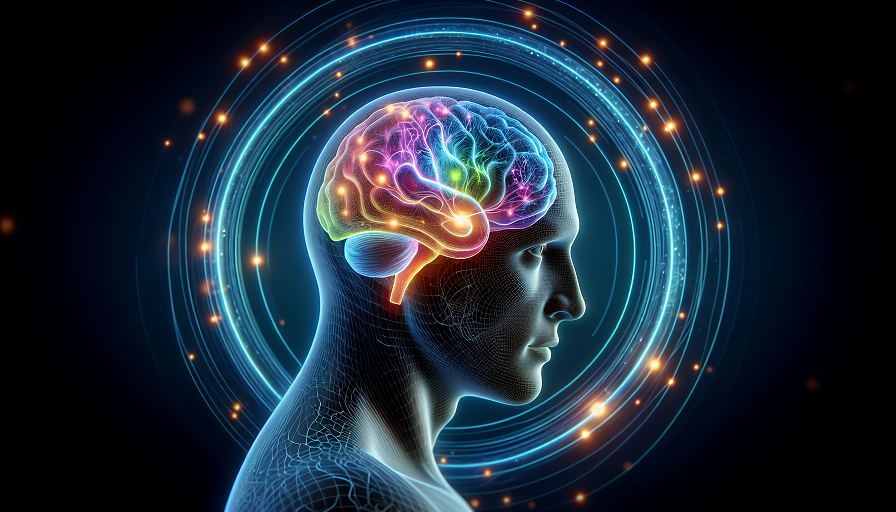
These days, staying focused can feel like a superpower. With constant distractions and a to-do list that never ends, maintaining peak brain performance is no easy feat. However, an emerging area of science is shedding light on a surprising factor that could make or break your concentration: the brain-gut axis. Imagine if improving your diet could translate into better focus, enhanced mental clarity, and a sharper memory. By examining this intricate connection between what you eat and how you think, you can begin feeding your brain the right way and achieve the mental prowess you seek.
Contents
Understanding the Brain-Gut Axis
The brain-gut axis might sound like a complex scientific term, but it’s really quite simple. This axis refers to the communication network between your central nervous system (which houses your brain) and your enteric nervous system (which governs the functioning of your gut). In essence, your brain and gut are in constant dialogue, using chemical messengers known as neurotransmitters to keep each other informed.
This interaction plays a crucial role in your overall well-being. When your gut is out of balance, it can send distress signals to your brain, leading to mood changes, brain fog, and difficulty concentrating. This concept underscores why maintaining a healthy digestive system could support better mental health and focus.
What Are the Key Players?
To get a handle on how what you eat affects how you think, it’s essential to know the pivotal players involved. In terms of the brain-gut connection, these players include neurotransmitters like serotonin and dopamine, both of which affect mood and cognition. Interestingly, a significant percentage of serotonin is actually produced in the gut. So, keeping your gut healthy can help keep your mood stable and your mind focused.
Another part of the equation is the microbiota, the trillions of bacteria living in your gut. These tiny organisms have the power to influence brain function in profound ways. A diverse and balanced microbiome has been associated with improved mental clarity and concentration, while an imbalance could lead to adverse cognitive effects.
The Role of Diet
Diet plays an undeniable role in shaping your microbiome. Foods rich in fiber, such as fruits, vegetables, and whole grains, can promote a healthy gut environment. Probiotic foods like yogurt, kefir, and fermented vegetables are excellent for introducing beneficial bacteria into your system.
On the flip side, diets high in processed foods, sugars, and unhealthy fats may upset the microbiome balance, potentially sending harmful signals to the brain. Such imbalances may lead to decreased focus and mental fatigue, highlighting the importance of mindful eating for brain health.
How Nootropics and Brain Supplements Fit In
In recent years, nootropics, also known as “brain supplements,” have gained popularity for their potential to enhance cognitive performance. These supplements are designed to boost brain function in various ways, including improving memory, focus, and overall mental clarity. Common nootropics include compounds like caffeine, omega-3 fatty acids, and even herbal ingredients like ginkgo biloba and ginseng.
Though the research on nootropics is still emerging, some studies suggest that certain supplements may positively impact the brain-gut axis. For instance, omega-3 fatty acids found in fish oil are known to support cognitive function and might influence gut health as well. When considering nootropics, it’s important to approach them with a critical eye, keeping in mind that they should complement a balanced diet aimed at nurturing both brain and gut health.
Choosing the Right Supplements
If you’re thinking about adding nootropics to your regimen, it’s wise to start by evaluating your current diet and lifestyle. Supplements are not magic bullets, but they can offer additional support when used responsibly. Consult a healthcare professional to tailor any supplementation to your specific needs, and be wary of products that promise quick fixes without scientific backing.
Additionally, consider maintaining a food journal to track how different foods and supplements affect your ability to focus. Pay attention to patterns where certain foods or supplements coincide with heightened mental clarity or, conversely, episodes of brain fog. Tracking these details can help you better fine-tune your personal brain-gut optimization plan.
Practical Steps for Enhancing Focus through Diet
Harnessing the power of the brain-gut axis doesn’t require drastic changes. Here are a few practical tips for getting started:
- Incorporate fiber-rich foods: Load up on fruits, vegetables, and whole grains to support a healthy gut microbiota.
- Prioritize probiotic foods: Choose foods like yogurt, kefir, and sauerkraut to introduce good bacteria to your gut.
- Limit processed foods: Cut down on items high in sugar and unhealthy fats that can disrupt gut health.
- Stay hydrated: Drinking plenty of water supports both digestion and brain function.
- Consider nootropics wisely: If you opt for supplements, do so after thorough research and ideally under professional guidance.
Listening to Your Body
Overall, maintaining peak mental focus is as much about tuning into your body’s signals as it is about what you put into it. Whether you’re tweaking your diet or considering nootropics, listen to how your body responds and be open to making adjustments. Your gut and brain have unique needs and finding the balance that works for you is key.
So the next time you’re feeling mentally drained, consider what you’ve been feeding your brain through the gut. By focusing on this connection, you are not just nurturing your body but enhancing your mental performance, setting the stage for sharper focus and a more fulfilling life.

